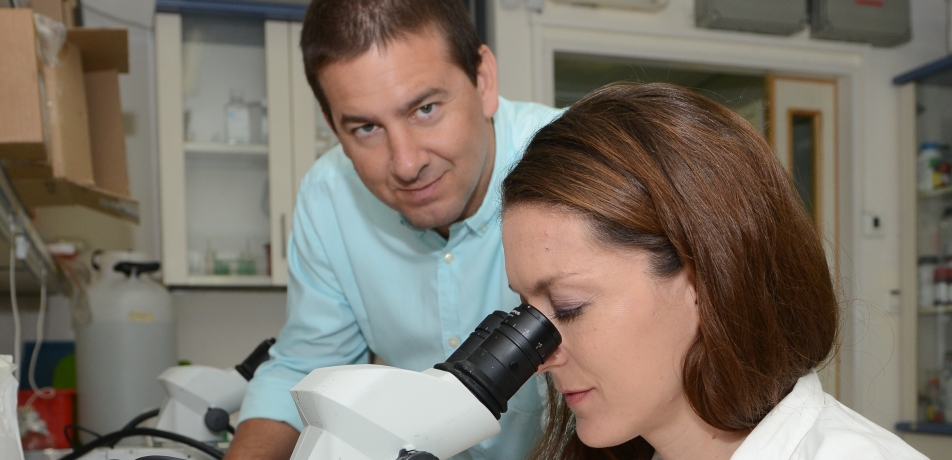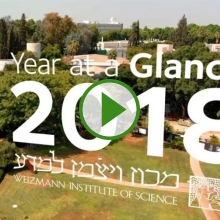The challenge of ALS
Briefs

They were once thought to be the “garbage” around our genes. But, as it turns out, they are actually treasure: microRNAs—tiny strands of RNA, which control the expression of our genes—are in fact intricately involved in nearly all aspects of regulating the lives of cells and play roles in all human diseases.
Prof. Eran Hornstein’s research is bringing these short RNAs into the spotlight, showing, for example, that certain microRNAs are crucial for the survival of motor neurons. When these fail to function, the result may be amyotrophic lateral sclerosis (ALS / Lou Gehrig’s Disease), a devastating motor neuron disease that gradually robs its victims of movement.
Recent research in his lab points to the malfunction and to possible treatments for the disease. Prof. Hornstein and his group have found that in ALS, an enzyme called Dicer is failing. Dicer is responsible for the processing of almost all microRNAs so they can reach their mature, active form. When Dicer gets jammed, he says, the resulting defects lead to the loss of microRNA activity in nerve cells and ultimately to the death of those nerve cells—and atrophy of the muscles they control.
In continued research, Anna Emde, MD, a PhD student in Prof. Hornstein’s lab, identified an existing drug called Enoxacin—an antimicrobial medication used for treating genito-urinary tract infections—as a possible treatment for slowing the progression of ALS. Because Enoxacin has already been proven reasonably safe for use on humans, Prof. Hornstein says that once clinical trials of the drug begin, the road to approving it for broad use against ALS could be relatively brief.
Meanwhile, Prof. Hornstein and his team are also working on developing additional drugs that will be RNA-based and specifically focused on preventing or reversing the disease-causing malfunction in the Dicer-microRNA-motor neuron cycle in ALS.
Prof. Eran Hornstein is funded by Adelis Foundation, Celia Benattar Memorial Fund for Juvenile Diabetes, Dr. Sydney Brenner Laboratory for Research in Molecular Biology, Julius and Ray Charlestein Foundation, Minna James Heineman Stiftung, Legacy Heritage Fund, The Nathan, Shirley, Philip and Charlene Vener New Scientist Fund, The Maurice and Vivienne Wohl Biology Endowment, The Wolfson Family Charitable Trust, Yeda Sela Center. Prof. Hornstein is the incumbent of the Helen and Milton A. Kimmelman Career Development Chair.








